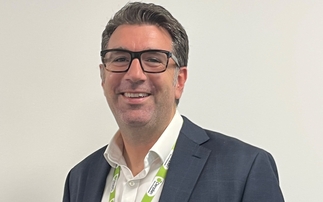Few healthcare cash plans sales are sold through intermediaries. Bill Gaywood asks why
From 2,984,000 contributors to healthcare cash plans at the end of 2002 an estimated 433,000 were company paid, by salary deduction as a group of employees, or through a personal scheme, according to Laing & Buisson's figures.
Company-paid cash plans account for 15% of total contributions, but this share has been growing in recent years and the trend looks likely to continue. This 15% of total contributions equates to £56.7 million being paid into cash plans, yet only a fraction of this is being received by brokers as commission. The majority wings its way back to the providers themselves.
Employee benefits
Only 2.5% of total sales in 2002 - up from 2% in 2001 - were intermediated. The reason for this could be that brokers believe cash plans provide low levels of commission. Yet this would be short-sighted and brokers would certainly benefit from looking at the bigger picture.
Cash plans and private medical insurance (PMI) commission levels are similar. If there is a £10,000 budget allocated to employee benefits, it doesn't matter if intermediaries decide to sell the company 10 PMI policies or 100 cash plans - their commission will be the same.
Intermediated sales of cash plans have increased slightly over the years, which shows that brokers are slowly coming around to the opportunities that cash plans can bring, in terms of commission, from selling them as a single product or as a bolt-on to others.
One of the main reasons that cash plans have entered a new era for intermediaries is that PMI sales are falling. In fact they have dropped by a quarter of a million over the last five years.
As it stands, company PMI accounts for 70% of all subscriptions, according to Laing & Buisson, so if a quarter of a million policies have been cancelled then there's a significant market looking for an alternative employee benefit. It is likely that this market will consider cash plans to fill the gap because they cost a lot less and will cover a great many more employees. No medical is required and premiums don't increase with age so, importantly, they are accessible to most of the workforce. In short, the potential for brokers to sell cash plans as an employee benefit is huge.
Cash plans began life almost 135 years ago, purely to cover the cost of hospital care before the existence of the NHS. Workers would pay a small contribution of their wage each week into the funds to cover the cost of hospital treatments. The payments were usually made on a Saturday when wages were collected hence the term 'Hospital Saturday Funds'.
Whereas in the nineteenth century cash plans were created to cover the cost of hospital treatment, cash plan members today can enjoy as many as 20 different benefits including dental and optical treatments, overnight hospital stays and a variety of complementary therapies.
It is because cash plans cover everyday healthcare treatments that employers are increasingly considering them as an employee benefit. Not only are plans more cost-effective than PMI but also, by covering the costs of certain treatments, they can help prevent illnesses or help employees get back to work sooner.
A report by healthcare consultancy IHC says that 40 million workdays are lost each year due to absenteeism. Of these it estimates that 13.4 million working days are lost to stress, anxiety and depression, and 12.3 million to back and upper limb problems.
It makes good business sense for employers to help their workforce when they are feeling stressed - for whatever reasons - because stress can result in high staff turnover, poor work performance, bad time keeping and an increase in absence from work.
Employers should also be aware of the knock-on effect stress can have. If a number of their employees are absent due to this condition, it places extra pressure on colleagues covering for them. This could lead to them becoming ill, or in the worst-case scenario, resigning.
Likewise, back and upper limb pain is becoming increasingly common among the UK workforce, especially manual workers. Millions of days are lost each year because of it and this is bound to affect the profitability of an organisation.
Selling opportunity
According to the Confederation of British Industry (CBI), a staggering £11.6bn in 2002 was paid out in wages to absent employees, a cost compounded by additional overtime and temporary staff cover. IHC says the answer is simply prevention - trying to remove the reasons why staff may be absent in the first place. This is where cash plans can prove valuable to companies and the sheer fact that they can help prevent absenteeism is a fantastic selling opportunity for brokers. Employers can be sold a low cost healthcare solution that is perceived by their employees as a high cost employee benefit.
Conditions such as stress and back pain can be addressed with the help of cash plans. A visit to the chiropractor, osteopath or physiotherapist can help cure back pain and part of the costs will be covered by the plan.
Likewise the alternative therapies that most plans provide such as reflexology, homeopathy and acupuncture, can help combat stress by rejuvenating the body and soul. Some providers also offer a 24-hour telephone helpline service with experienced advisers at hand to provide stress counselling and advice on other issues such as debt and bereavement.
Reaching employers with information like this is fundamental to the success of selling cash plans as the employee benefit of choice. PMI does not usually cover these smaller everyday healthcare treatments, which enable people to visit a dentist or physiotherapist when they need to rather than when they can afford it. By dealing with an ailment at its onset, an employee can help ensure it doesn't reach the stage where it becomes so bad valuable time off work is required.
Cash plans are one of the fastest growing employee benefits because they also bring other advantages to organisations. Providing cash plans as an employee benefit means that the workforce feels cared for which, in turn, improves motivation and morale. For employers, cash plans can also help with the recruitment and retention of staff.
In short, brokers can talk to employers about the fact that cash plans can help organisations create a stable working environment.
Bridging the gap
The latest Laing & Buisson report revealed cash plan penetration was running at 8.7% of the UK population by the end of 2002, while it was 12.8% for PMI. The figures are echoed in a recent Mintel report and both agree that the prohibitive personal cost of PMI premiums, which have risen due to an increased number of claims, will cause many to opt out of PMI.
Another reason cited in Mintel for fewer individuals taking out PMI is the rising faith in the NHS. With cash plan cover, members continue to be treated by the NHS. Many feel 'going private' is against their principles, but still want help towards the cost of everyday treatments such as a filling at the dentist or a new pair of glasses. Cash plans simply bridge the gap between what the NHS will cover and what members have to pay for themselves.
So if PMI sales have fallen by quarter of a million over the last five years and employers who have cancelled policies still want to provide their workforce with a health insurance benefit, cash plans may provide a cost-effective alternative. Brokers should consider the commission that could be theirs should the gap in the PMI market be filled by cash plans. It is beneficial to providers to pay commission to brokers rather than absorb it back themselves, as it means they are selling more plans. If providers and intermediaries begin working more closely together it could be a win-win situation.
Bill Gaywood is chief executive at Medicash
COVER notes
• Just 2.5% of cash plan sales were intermediated in 2002.
• Cash plans provide the same levels of commission as those in the PMI market.
• Brokers should be pushing cash plans as an employee benefit as it is here where most sales opportunities lie.











